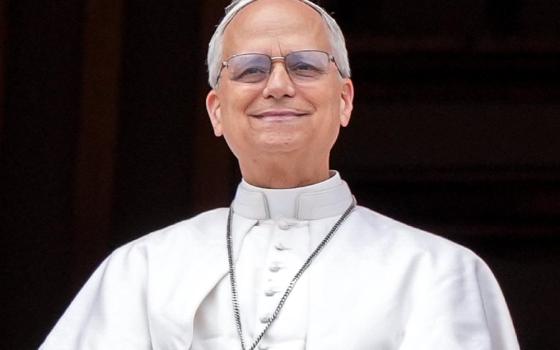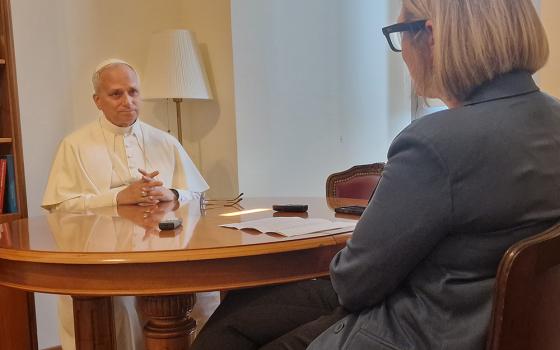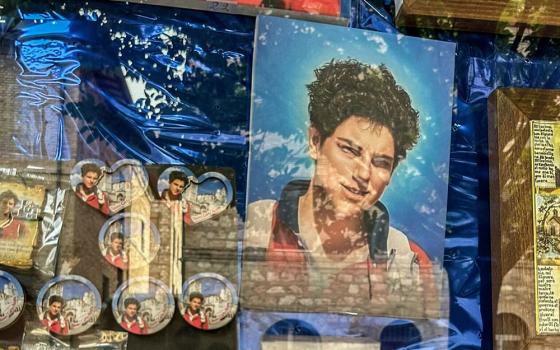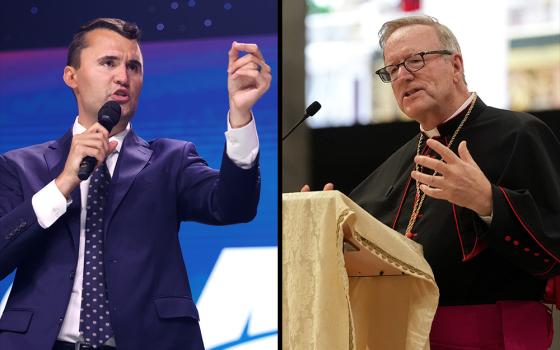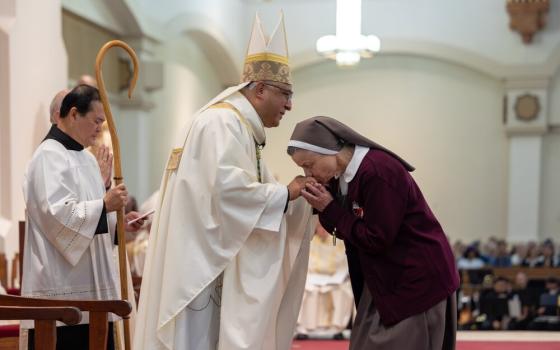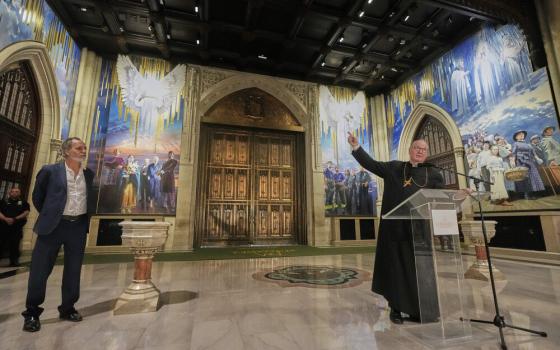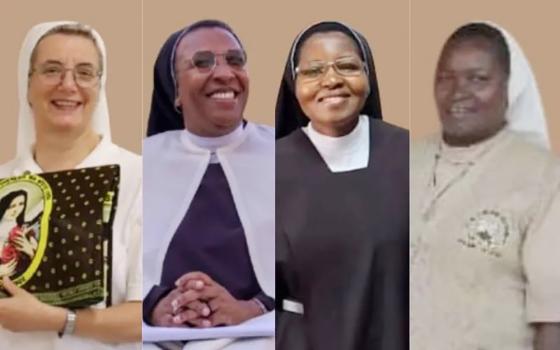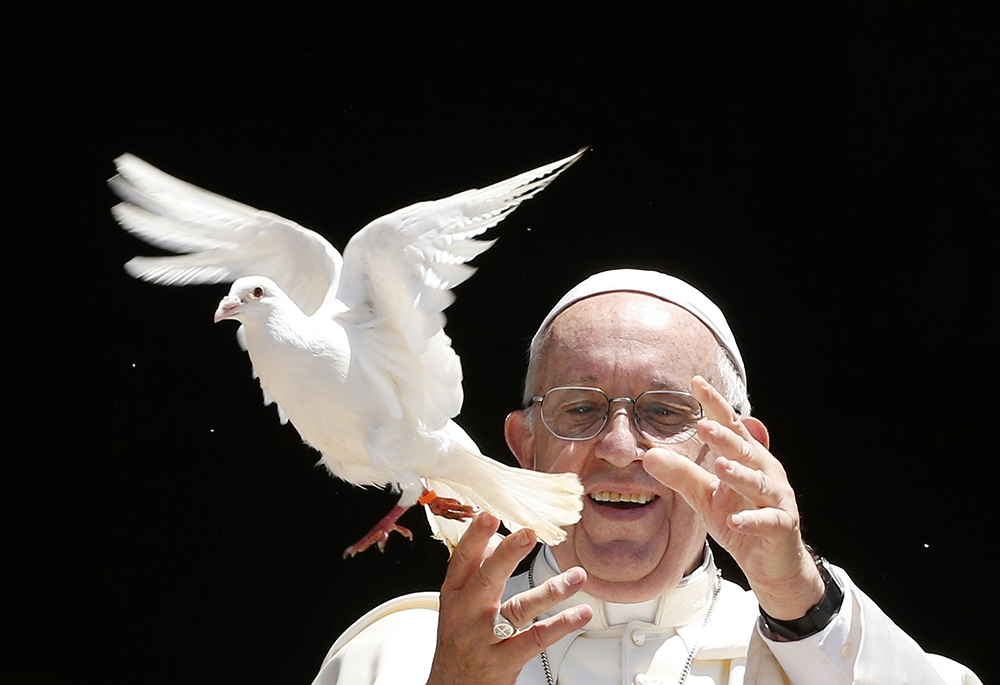
Pope Francis releases a dove outside the Basilica of St. Nicholas after meeting with the leaders of Christian churches in Bari, Italy, July 7, 2018, for an ecumenical day of prayer for peace in the Middle East. Daniel Horan writes that Pope Leo XIV is carrying the late Francis' message forward in his own teaching, urging all people to address the war on creation in our hearts and world. (CNS/Paul Haring)
With everything that is happening in the United States and across the globe right now, it can be easy to forget that Sept. 1 marked the beginning of the 2025 "Season of Creation," the ecumenical effort "to renew our relationship with our Creator and all creation through celebration, conversion, and commitment together."
Each year a theme is selected to help focus the attention, prayer and advocacy of the community of faith and other people of goodwill. This year's theme is "Peace with Creation," which seems particularly timely given how much conflict and violence exists at this moment in the world.
Like so many other people, I find myself at times angry, exhausted and even distraught over what is happening in terms of our national politics and the state of global relations. There's a part of me that feels that focus on the nonhuman world and efforts to attend to the Season of Creation is merely an opportunity for escapism, a chance to shift my attention away from the dehumanizing immigration policies of the Trump administration or the persistent violence and inexcusable humanitarian crisis in Gaza or the unjustifiable war launched by Russia against Ukraine.
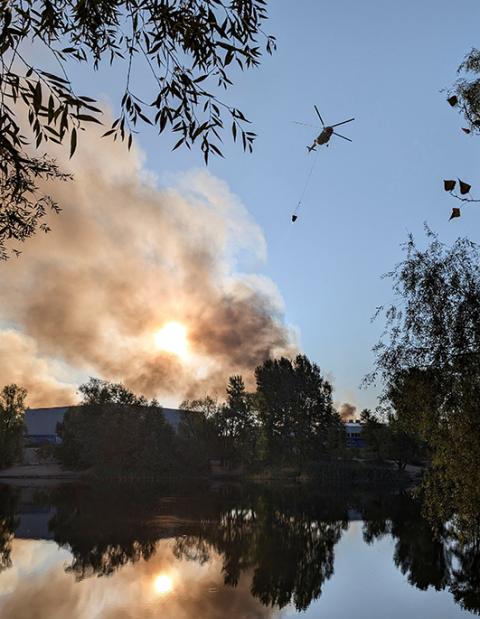
A fire-fighting helicopter collects water to control a fire after Russian missile and drone strikes in Kyiv, Aug. 28, 2025. (OSV News/Reuters)
But another part of me recalls that, as I wrote in NCR six years ago, climate change is the most important life issue because without care for creation, without a sustainable ecosystem and a stable planet, all other concerns relating to human life are moot. As terrible as so many threats against human life are, if there is no habitable planet on which humans can live, defense of life becomes irrelevant.
This is partly why Pope Francis described Earth as "our common home," because we — both human and nonhuman creatures alike — are inherently intertwined and interdependent, and if we continue to weaken, pollute and destroy this planet, we threaten all life.
The Ecumenical Steering Committee that determines the annual theme for the Season of Creation wrote this year that, "Throughout history, many human activities have contributed to the destruction of Creation. Yet today, more than ever, some human activities take the form of a war against Creation. Our impact has expanded from local to global, manifesting in unsustainable lifestyles, excessive consumption, lasting pollution, and a throwaway culture."
Framed this way, the celebration of the Season of Creation this year may not actually be a distraction from the wars and division in our midst, but a stark reminder of yet another battle front that threatens not just sovereign nations and the human community, but something that threatens the entire globe.
Advertisement
Two years ago around this time, I wrote about the phenomenon of "ecophobia," which is a term to describe what environmental studies scholar Simon C. Estok identifies as "a uniquely human psychological condition that prompts antipathy toward nature." He adds, "The ecophobia condition exists on a spectrum and can embody fear, contempt, indifference, or lack of mindfulness (or some combination of these) toward the natural environment."
Reminding us that Jesus called all people to be peacemakers (Matthew 5:9), the Season of Creation steering committee challenges all people of goodwill to examine our consciences to consider the ways we contribute to violence against creation. Among those things we should explore in prayer, reflection and dialogue are the ways we find ourselves succumbing to ecophobia, whether that is fostering a sense of dominion or a desire to exploit the nonhuman creation, or operate in ways that reflect antipathy toward or fear of the more-than-human world.
While certainly not the same as Russia's criminal invasion of Ukraine or the humanitarian crisis perpetrated by the state of Israel against the Palestinian people in Gaza, there may be analogous ways we humans relate to the nonhuman world, reflecting a sense of entitlement to take what we please and do with creation as we want. This ecophobic tendency has led to distorted practices like the 19th-century doctrine of "manifest destiny," contemporary factory farming, mountaintop removal, and deforestation, among others.
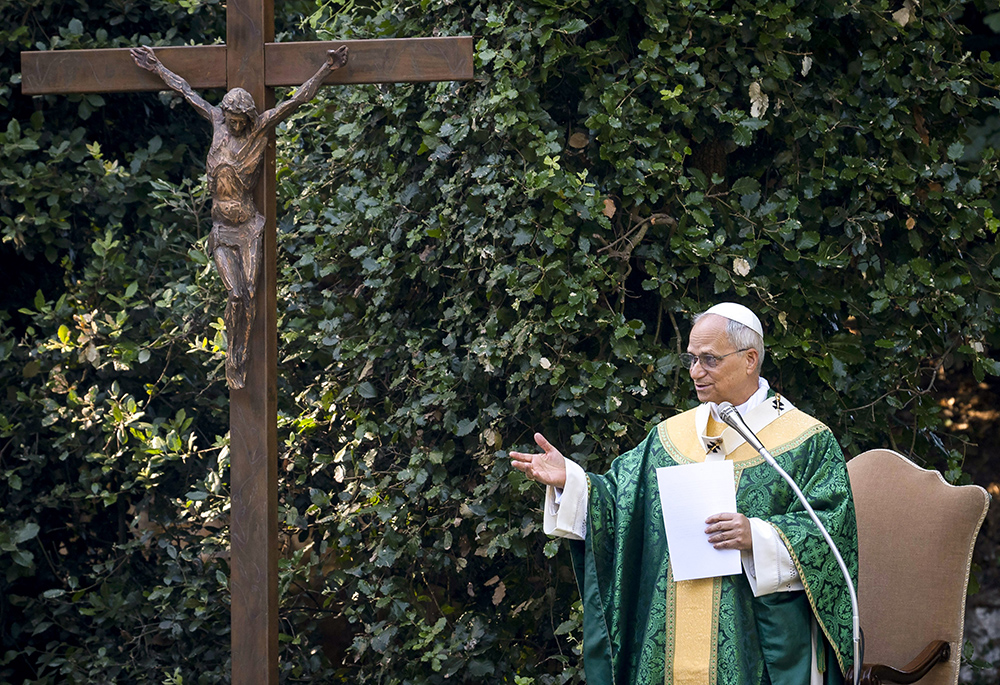
Pope Leo XIV celebrates Mass for the Care of Creation on the grounds of the Borgo Laudato Si’ ecology center in Castel Gandolfo, Italy, July 9, 2025. In his homily, the pope called for ecological conversion while drawing from the legacy of Pope Francis and his encyclical "Laudato Si', on Care for Our Common Home." (CNS/Cristian Gennari, pool)
It is worth considering how we might take the Season of Creation as an opportunity not only for an examination of conscience, but also a time to meditate on war and peace in the human community, the cosmic community of creation and even in our own hearts.
How do we think about ourselves in relationship to nonhuman creation? What role does care for creation play in my own decision making, consumption and other practices? Do I hold animosity or fear in my heart toward the more-than-human world?
In his remarks on the occasion of the opening of the 2025 Season of Creation, Pope Leo XIV called for environmental justice while recognizing that the "various wounds" of creation "are the effect of sin." He continued:
Environmental justice — implicitly proclaimed by the prophets — can no longer be regarded as an abstract concept or a distant goal. It is an urgent need that involves much more than simply protecting the environment. For it is a matter of justice — social, economic and human. For believers it is also a duty born of faith, since the universe reflects the face of Jesus Christ, in whom all things were created and redeemed. In a world where the most vulnerable of our brothers and sisters are the first to suffer the devastating effects of climate change, deforestation and pollution, care for creation becomes an expression of our faith and humanity.
Francis reminded us 10 years ago in "Laudato Si', on Care for our Common Home," that "everything is connected" and that we must hear the "cry of the earth and the cry of the poor." Leo is carrying that message forward in his own teaching, urging all people of goodwill to address the war on creation in our hearts and world. In his July 9 homily, Leo said: "We hear the cry of the earth and we hear the cry of the poor, because this plea has reached the heart of God. Our indignation is his indignation; our work is his work."
The wars within human society are connected to the human war on creation, because everything is indeed connected. The two different yet related cries call us to embrace a spirit of ecological conversion, beckoning us to surrender our violent attitudes and practices in order to become, as the pope said, "seeds of peace and hope." As we mark this year's Season of Creation, it is a good time to consider war and peace within and beyond the human realm, and reflect on what each of us can do to become better members of God's cosmic family of creation.

